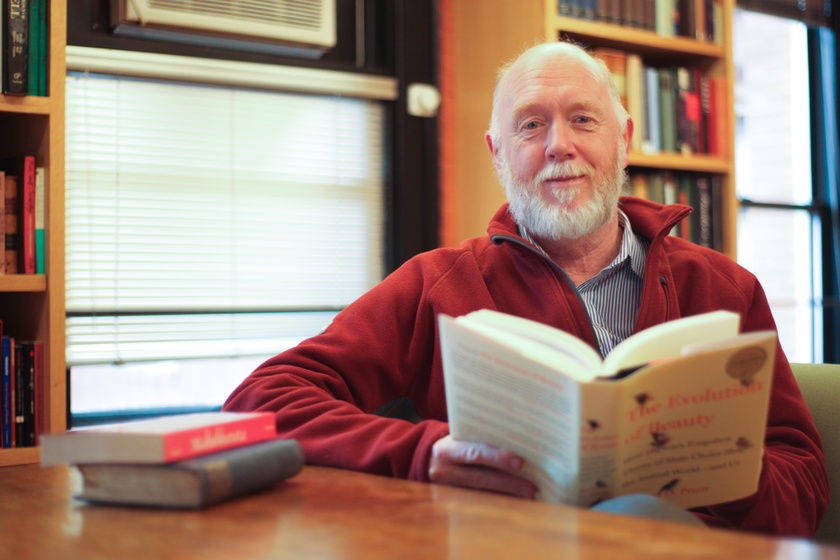From CRISPR to whole genome sequencing, the field of genetics has exploded over the past few decades. With public resources like ancestry.com and 23andMe, it’s easier than ever to evaluate the composition of your DNA at the push of a button. In an age where genotyping allows us all to discover our own heritage, what can we gain from understanding our ancestry?
Professor David A. Haig at the Department of Organismic and Evolutionary Biology focuses on genetic imprinting and teaches a freshman seminar about the relationship between genetics and history called “Where are you from? Ancestry in the Age of Genomics.”
“Culture and biology interact in complex sorts of ways, and that’s what I am wanting to explore,” Haig says. “Some people suggest that this recent obsession with ancestry is a modern invention of genetics, but it’s not. People have been concerned about blood and their family and where they come from for a long time.”
Haig’s plan for the course is to mend a perceived rift between the humanities and sciences at Harvard—to help both those students interested in science and those interested in non-scientific fields to see the value of genetics across disciplines. Haig believes this change in perception may lead to more respect for genetics’ implications for cultural issues.
“The course looks at the interaction between culture and biology, so much about how we care about ancestry and sense of identity,” Haig says.
In his research, Haig continues to explore the effects of genetics on culture and evolution.
“In a lot of biology, the model of the body—going back to Descartes—the body is a machine, with all the parts working together for some common end. I’m interested in situations where that model breaks down, and the genome in particular actually becomes a social organization with different entities, with different purposes and goals and ends,” Haig says.
More specifically, Haig says he is interested in sex-specific genes. “I started off in this field on the phenomenon of genomic imprinting, which refers to a subset of genes in our genome that retain a history of what sex they were in the previous generation. The gene does something different if you get it from your mother than if you get it from your father.”
Haig isn’t the only professor tackling the mystery of genetic heritage. Professor David E. Reich at the Department of Genetics at Harvard Medical School is conducting groundbreaking research on the use of genetics as a map to trace and predict diseases.
Similar to Haig, Reich focuses on humans’ shared evolutionary past. One of his past research endeavors made strides toward better understanding the ancestry of Indigenous Americans.
“What’s emerged from whole genome studies has contributed greatly to large proportions of genomes that we didn’t really recognize before,” Reich says. “Analyzing data has shown that the evidence is not consistent with the popular idea that all Native Americans descend from one lineage.”
Reich says he believes that genetics has the ability to give us a deeper look into our past.
“A lot of people have an idea of the types of people we see around us. We like to imagine an idea of certain groups and deep divisions between these groups,” Reich says. “However, our genetics is much more mixed up than we have presumed. Genetics can really be used as a way to explode those assumptions. It is clear in DNA that the existence of these divisions are incorrect.”
Though the field of genetics has made huge leaps, we still have a long way to go before we are fully aware of our ancestral origins, the professors say.
“Everybody’s story is wrong about who they are and where they came from,” Reich says. “We are all profoundly mixed up, and in some sense a lot of what we assume to know about our heritage is made up.”
Magazine writer Margaux R. E. Winter can be reached at margaux.winter@thecrimson.com. Follow her on Twitter @MrewGnu.


